Microsoft Bing vs Google Bard: who's winning the AI chatbot fight?
Welcome to round two of the heavyweight chatbot wars...
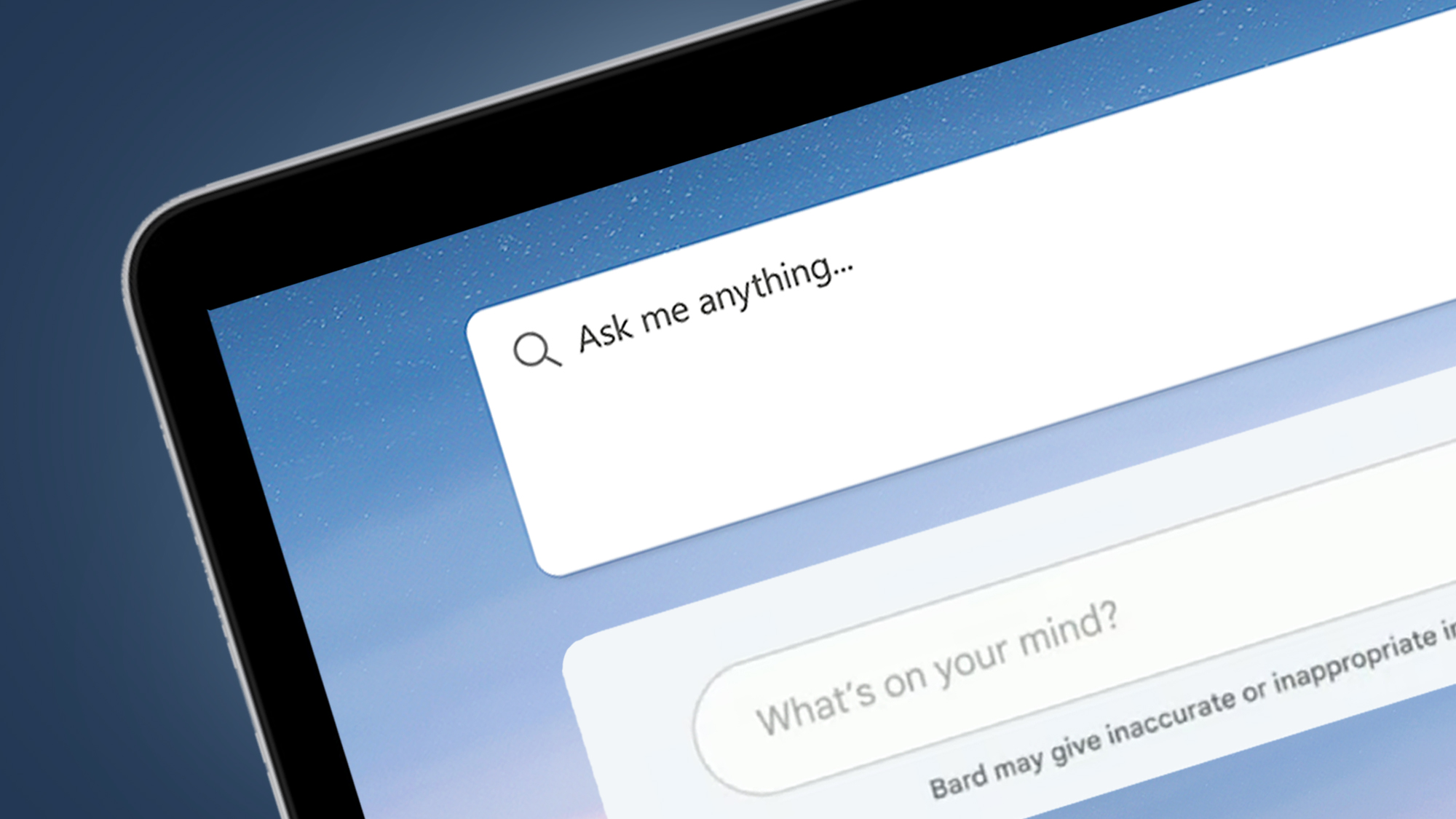
Sign up for breaking news, reviews, opinion, top tech deals, and more.
You are now subscribed
Your newsletter sign-up was successful
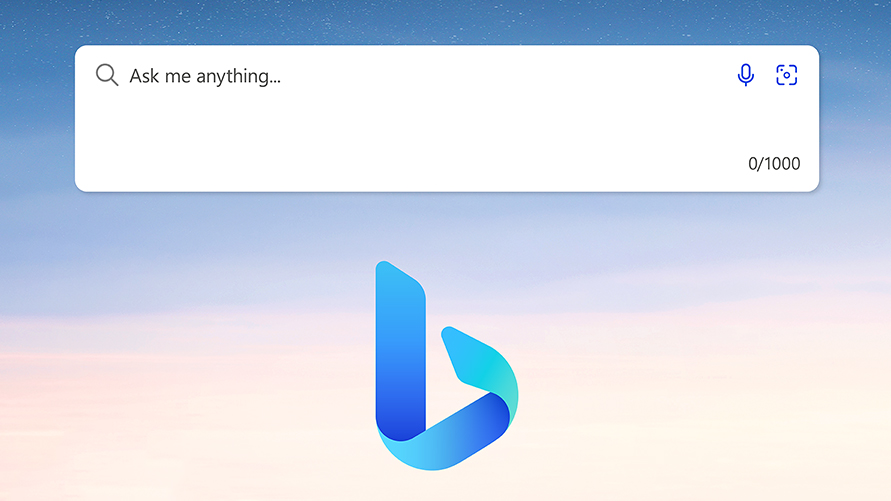
Both Microsoft Bing and Google Bard are available to the public. Be sure to check out our guide on how to use the new Bing search engine powered by ChatGPT. Alternatively, try other AI-powered search tools like Neeva or Perplexity.
Google has been the byword for 'searching the internet' for almost a quarter of a century. But this week, a small crack appeared in its colorful armor for the first time in years — and all courtesy of the previously ridiculed Microsoft Bing.
The futuristic weapon Microsoft employed was an AI chatbot built on ChatGPT. By relaunching Bing (as, er, 'The New Bing'), Microsoft was able to preview a new kind of internet search — one that lets you talk to and interrogate a seemingly all-knowing sage rather than just be presented with a list of web pages.
Of course, the tech itself is nothing new. The meteoric rise of ChatGPT, which recently became the fastest-growing app in history, has already popularized the idea of a conversational search engine that talks in a disarmingly human way. The difference is that these tools, unlike ChatGPT, are plugged into the internet to help them generate fresh answers on new topics, too.
Google was at pains to point out that its Transformer research project in 2017 is the basis for most of the generative AI apps we see today. In an attempt to steal Bing's thunder, it announced Bard — an "experimental conversational AI service" — the day before Microsoft's Bing relaunch.
By plugging these AI chatbots into the world's two biggest search engines, Google and Microsoft are taking them to a whole new mainstream level. From here, the way we search the internet will never be the same again. But how exactly do the tech giants' AI search assistants compare? And who's winning so far in this long battle? Here's a five-minute breakdown of where we are right now.
What is an AI chatbot?
Before we compare Microsoft and Google's new AI chatbots, here's a quick recap of what they actually are.
The technologies powering both new Bing's 'chat answers' and Google's Bard for Search are called 'large language models'. These are neural networks, or deep learning algorithms, that have been trained on vast amounts of data and can generate conversational responses to prompts.
Sign up for breaking news, reviews, opinion, top tech deals, and more.
Microsoft says its new version of Bing is powered by a "next-generation OpenAI model" that is "more powerful than ChatGPT". This could be the long-rumored GPT-4 successor to the GPT-3.5 model that currently powers ChatGPT. But we'll have to wait for an announcement from OpenAI to be sure.
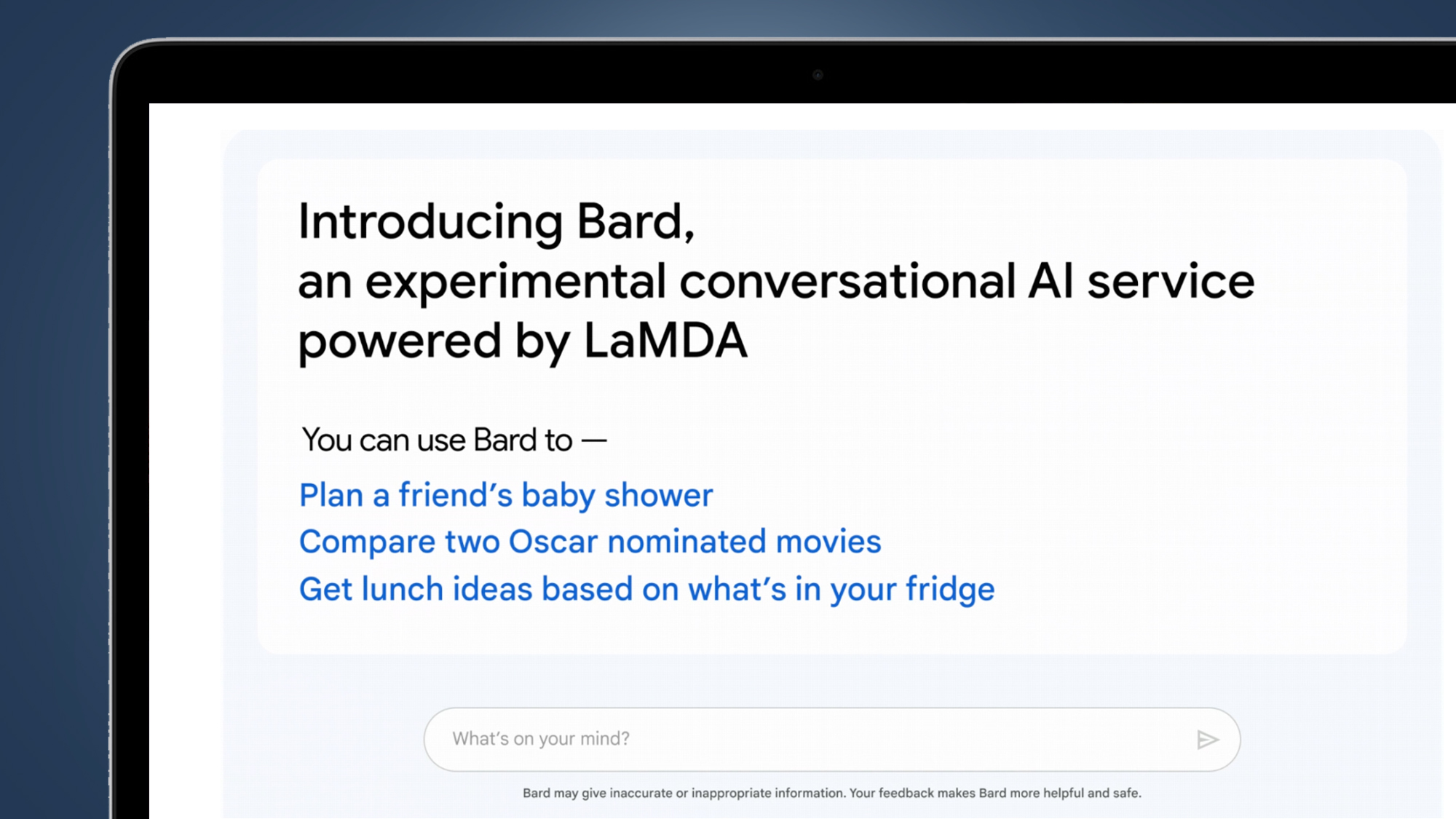
Google's Bard, meanwhile, is powered by a lightweight version of LaMDA (short for Language Model for Dialogue Applications). It's finally been opened up to the public, now available in over 180 countries around the world.
The chatbot-based search we'll soon see in both Microsoft Bing and Google Search will work in a similar way. In a separate box to traditional search results, you'll get longer, contextual answers to more open-ended questions (queries that Google is calling NORA, or No One Right Answer).
Both Microsoft and Google have provided examples of the kinds of questions that the AI-powered Bing and Search will be particularly helpful for.
Microsoft's example questions for the new Bing
- Will the Ikea Klippan loveseat fit into my 2019 Honda Odyssey?
- My anniversary is coming up in September, help me plan a trip somewhere fun in Europe, leaving from London.
- I like electronic music and want to go to my first festival this year. Do you have any recommendations or tips for me?
Google's example questions for Bard in Google Search
- Is piano or guitar easier to learn and how much practice does each need?
- I want to buy a new car for my family. What should I consider?
- Help me understand the pros/cons of buying an electric car.
Microsoft Bing vs Google Bard: how do they compare?
Google is finally opening up more about how its AI-powered search tools work, which was something Microsoft initially had over the other tech giant. Both work in similar ways, with the new features complementing, rather than replacing, the traditional search bar.
This week, Microsoft introduced a new Bing search engine and Edge web browser that benefit from what it calls your "AI-powered copilot for the web". In Bing, there are two ways to talk to this AI assistant.
First, there's an expanded search box that can accept up to 1,000 characters, so there's room for the natural language and full sentences that Bing is now better at understanding. Type a question or prompt into Bing and you'll see a new 'chat answers' box appear next to the traditional list of websites, complete with a ChatGPT-style answer.
Alternatively, you can click on the Chat option in the menu above the results. Here you'll be presented with a screen devoted entirely to the chatbot, so you can start grilling it about what you should substitute for eggs in the birthday cake you're making.
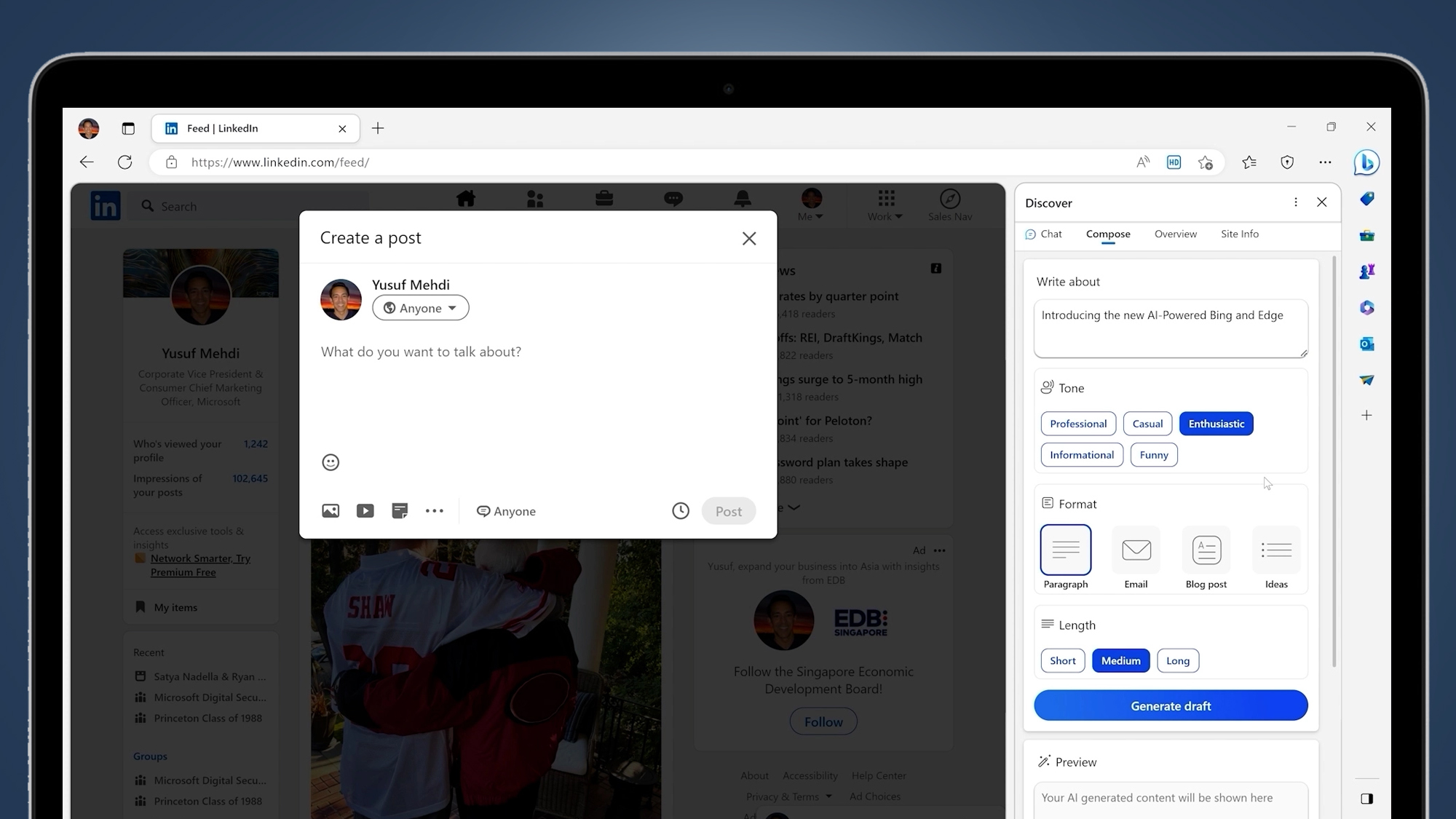
Microsoft's new Edge browser is also directly connected to these same chat powers, which is something Google's Chrome will surely also do with Bard. You now get a sidebar that scans web pages and lets you ask queries or generate summaries, all in the browser.
Right now, Google's integration of Bard into Search is a little less clear. In its demos (which you can see below by skipping to 13:37), Google shows a search box with a Facebook-style 'what's on your mind?' prompt that understands natural language questions like the ones above.
Another of Google's examples (below) shows Search providing a chatbot-style answer to a longer question typed into its traditional search bar.
So it looks like Google's AI search engine integration will be similar to Microsoft's — you'll get a conversational answer to what it calls NORA queries (No One Right Answer) in the usual Google Search, or you'll get a larger dedicated chatbot space to start a proper dialogue. Exactly how it plans to bake all of this into Chrome still remains unclear.
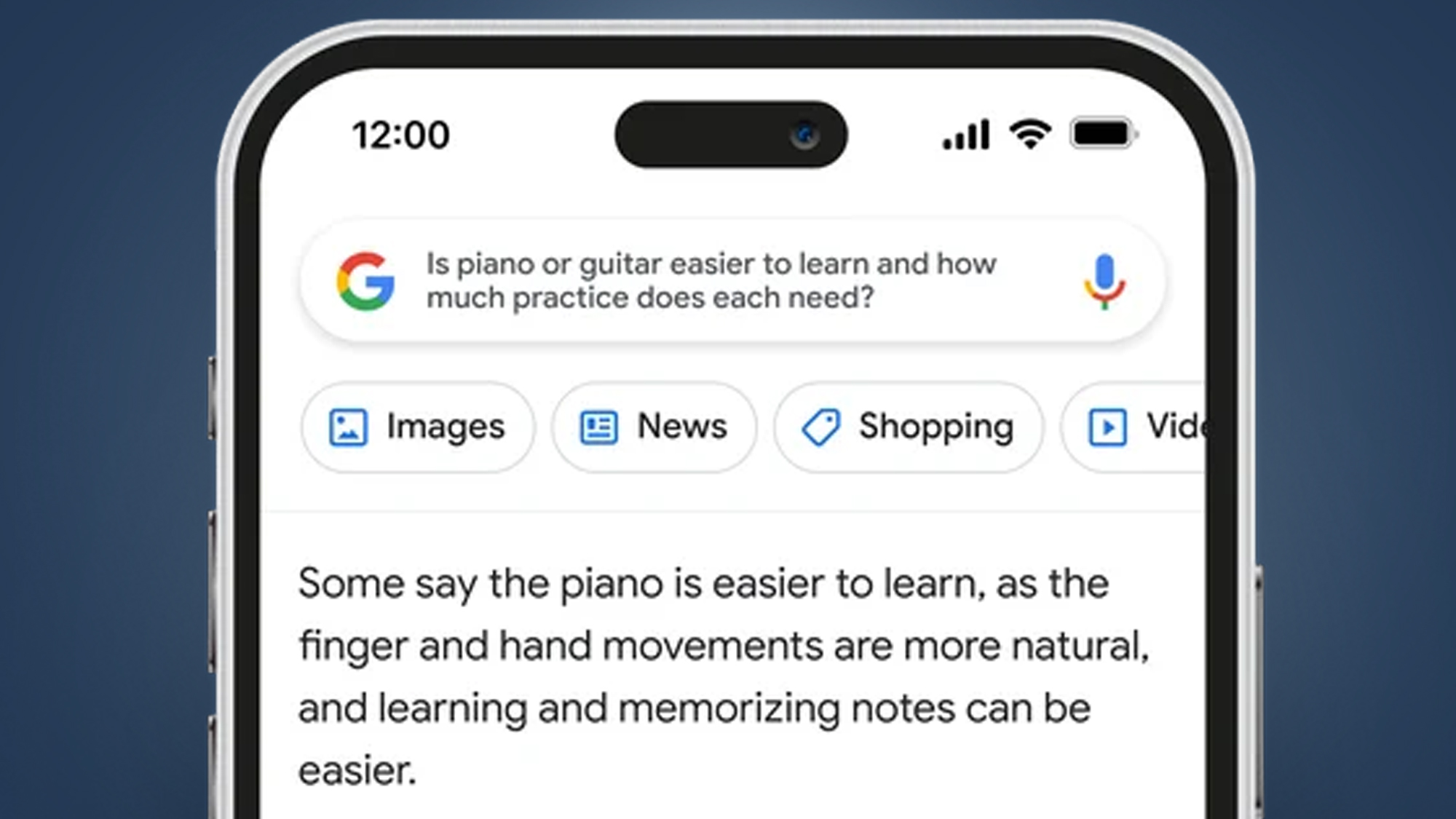
While the tech giants' technologies and user interfaces for AI-powered search look similar, Microsoft is clearly a step ahead when it comes to rollout. Microsoft's Bing and Edge are connected to a 'next-generation' OpenAI model that's apparently more powerful than ChatGPT. The new Bing is also already out in the wild, and Microsoft's opened a waitlist for it (go to Bing and click on the Chat menu).
Google's Bard, meanwhile, is based on a 'lightweight' model version of LaMDA. Its current language model and a direct answer to OpenAI's GPT-4 model is called PaLM 2. The initial version, PaLM, was trained on 540 billion language parameters, and though Google hasn't stated how many PaLM 2 has been trained on it promises improved capabilities in addition to faster and more efficient performance.
Bing vs Bard: who's winning?
There's no doubt who won this week's PR battle in AI-powered search. While Microsoft was confidently launching its new versions of Bing and Edge, Google was hurriedly rushing out Bard press releases and fending off questions about a factual error spotted in one of Bard's answers.
That single mistake apparently wiped $100 billion off Google's market value and forced it to admit that the error "highlights the importance of a rigorous testing process". Some leaked emails have also now suggested that we're on a "long journey" to truly reliable AI chatbots.
But thanks to the Google I/O 2023 event, it seems that Bard is coming back and hitting harder than before. There are plenty of new features that have already been released or will release soon for Bard including improved citations, export capabilities to Google Docs and Gmail, an export tool that will allow users to export Python code through Replit, increase language support to 40 languages, multimodal functionality, and a wide variety of Adobe integrations.

Microsoft is, unusually, the plucky upstart with a 9% desktop market share, while Google is the defensive incumbent (84% market share) with far more to lose from rushing out a half-baked AI search engine. While Microsoft is definitely after some more of that pie, that picture won't change in a hurry.
Right now, the new Bing and the Bard-infused version of Search are like kindergarten prodigies, with Microsoft adopting the more laissez-faire approach to parenting. Neither will always be accurate — and this could mean more costly mistakes and potential lawsuits if chatbots result in Microsoft and Google being deemed as publishers rather than platforms.
Still, for now, we're at the fun stage. Incredibly, Bing is the hot new search engine, and the arrival of AI-powered search is an exciting shift from today's very 'early 2000s' experience. Roll on next-gen Google Search and the next round of this fascinating tech tussle.

Mark is TechRadar's Senior news editor. Having worked in tech journalism for a ludicrous 17 years, Mark is now attempting to break the world record for the number of camera bags hoarded by one person. He was previously Cameras Editor at both TechRadar and Trusted Reviews, Acting editor on Stuff.tv, as well as Features editor and Reviews editor on Stuff magazine. As a freelancer, he's contributed to titles including The Sunday Times, FourFourTwo and Arena. And in a former life, he also won The Daily Telegraph's Young Sportswriter of the Year. But that was before he discovered the strange joys of getting up at 4am for a photo shoot in London's Square Mile.
- Allisa JamesComputing Staff Writer

